
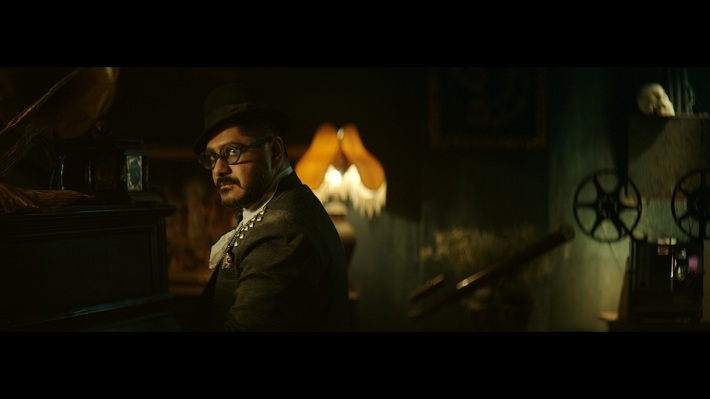 Photo Courtesy: Varun Mehta & Arnab Chaudhary
Photo Courtesy: Varun Mehta & Arnab Chaudhary
Bann Chakraborty: Tell us a little about the journey you’ve had so far, since you started with Chakravyuh. How have you seen the scene evolve since then? As a musician, are you positive about it, or are you not that sure?
Dhruv Ghanekar: I am positive. I don’t have anything negative to say. See, honestly the scene has just started now, like seven or eight years ago. A lot of people credit Blue Frog, NH7, and OML; all these things have been happening. Those kind of things, I think, happened around the same period. They’ve all taken off in varying degrees. So, all that has happened in these last few years has been a sort of renaissance. So honestly, it's very young, and nobody should pass judgement on it. That’s my opinion. Because it's just six or seven years old, you can’t judge anything in such a short period. It takes time, it's going to take ten to fifteen years. There’s going to be a generation that is going to come up that has been listening to all the stuff that’s happening now. I think we are also becoming a little more comfortable in our skin, so to speak. Whether it's writing your own music or composing, whatever, I think all those things will start happening after ten years or so because it takes as much time for things to settle down. My only concern is that there aren’t enough venues. Fortunately we have schools now, that’s happening. Festivals are there; I don’t want to get into whether they’re good or bad, but they’re happening. We don’t have enough venues in Bombay, we don’t have enough venues in any other city for that matter. For any scene to flourish there have to be a lot of venues, that is like a hundred per cent requirement. Without that it's not going to happen. I think, for it to accelerate and go into the next level, there will have to be a lot more venues.
BC: Tell us a little about how you’ve seen yourself evolve as a musician from the time you began.
DG: I think it's been good. It's been postitive. A lot of this stuff for me has been fairly accelerated in the last four to five years I think; since we set up Blue Frog. A: I think the setting up of Blue Frog gave me an insight into how the back end of the music scene works, and how the selling of the music actually works. Because musicians as a species are far removed and don’t like to get involved in that aspect, I think it's super important to understand this as early as possible; of what the reality is. Without that, you can’t be just making stuff and be like, ‘This is my artistic take on things’; it doesn’t work like that. So, that process has been very rewarding for me. But more than that, I’m very fortunate that I have somewhat of a parallel life. I compose and produce music for advertising and film. That actually has given me a lot of exposure – strangely enough – to a lot of music. Because of which, I’m forced to create something new everyday which was a lot of times – not so much now – against what I was listening to or completely outside my world. So, that discipline of creating music everyday is like a great catharsis in a sense; its like therapy.
BC: I think it's really intereseting that you say that because a lot of musicians I’ve met that work with advertising and films, complain of how they are stuck and not being able to come out of it, and do their own stuff. A lot of critical opinions I’ve heard point out to how these musicians are so used to writing jingles, that when they come out and write their own style of music, it sounds like a jingle. But, I remmeber how you always said that it is still a great opportunity to make music.
DG: Of course it is. I’ll be absolutely honest, I feel I am very fortunate to be doing this. It allows me to do what I really want to do, and it comes back to why we started doing this in the first place. I think I must’ve made a vow to myself when I started making music, that I’ll make music for myself, and when I do that it's going to be something I’m proud of and not something that’s going to be dictated by mainstream pressure. So, I try and avoid that kind of music. It's not a completely indulgent exercise, obviously I’m aware of what people also like to listen to, and what they would respond to. That is always there in the back of my mind.
BC: But, do you still think about whether your music is going to sell?
DG: No. It's not so much about selling anymore as it is about performing. I’ll give you an example, my previous album was very mellow and esoteric. After about four or five gigs of playing that music – which was about three years back – I quickly realised that it's not going to work, trying to reproduce the album live the way it sounds on record; that doesn’t work. So, I put a completely new band together and trashed the tunes out and we came up with a more aggressive and more punchy sound which is what we were touring with over the last year. The process of performing also has to evolve. So, like you put something out, that then for me becomes like a blue print. It cannot be followed; you can never replecate production the way the album is produced, live. It would have to be on the scale of someone like Rihanna or Michael Jackson to do that. Because, then you have fifteen musicians on stage, and there are tracks playing; it's very complicated. You can’t do that playing this kind of music because most people don’t have that kind of budget. So, necessity I could say is the mother of invention. Choose good musicians to play with, and then kick the shit out of the tunes; that’s how see it.
BC: I understand the fact that you play music for yourself, but are you anxious about whether that music is reaching out to people or not?
DG: Yes, of course I am. Any artist who says he is not is probably lying.
BC: But then do you know how much your music can really reach out, specially in our country?
DG: It's not that. It's not bollywood. It's not a wide mainstream sound, it's not. I’m very conscious of that. Honestly, I’ve reacted to music that I’ve grown up listening to, that I was inspired by. I’d like to put something out there that would hopefully inspire or touch people on an intellectual and emotional level. It's not about playing the corporate games and such; that’s not on the agenda.
BC: Then how does the compensation happen?
DG: It doesn’t happen. It hasn’t happened. This album has been a turning point for me in a certain sense. Not so much this album as much as the one that’s going to come up after this. The one that I’m going to start working on soon. This album is sort of a departure from my last album. The songwriting is much stronger, the tunes are more vocal oriented, and I think just overall it’s a much more solid piece of music. It sort of is a turning point for me.
BC: Are you listening to new music?
DG: All the time.
BC: There’s this debate that’s been going on for a while among musicians, that independent music in India sounds almost as if it's for the elitist, and not really for the general mass. Do you think that our tastes our too acquired?
DG: Not at all. I don’t think so at all. See, as I said about anybody that has to say anything regarding the scene, it is too young right now. It's too ealry. The scene is too young and we’re going to have to nurture it and I encourage everybody to do their own stuff. There is a process; everytime you finish something you really need to finish it. You need to be like, ‘Okay this is it now. It's done. Im not touching it’. That process has so much to learn from, because when you’ve finished it you realise what you could have done better, and that will feed into your next project. But, if you don’t finish stuff and you’re just writing it and putting it out there – which a lot of us do – then there is no learning from it. I think it's very important for everyone to commit to it and say, ‘This is my sound, this is who I am. 2015, this is what I want to present to you guys'. Whether people like it or not is up to them.
Read Part II of the conversation here.
Watch the promo for Voyage by Dhruv Ghanekar below:
Previous Article IJA Release Debut EP IJA Release Debut EP
|
Next Article In Conversation With Dhruv Ghanekar - Part II In Conversation With Dhruv Ghanekar - Part II
|
Delhi's lo-fi noise punk act Hoirong recently released a three-track EP, Old Newz, with acoustic renditions of the songs from the forthcoming full length album. We spoke to vocalist and gutiarist Kamal Singh about the EP.
The DIY DAY Festival organisers have announced the first edition of the DIY DAY Live concert series to be held on April 1 at the India Habitat Centre in Delhi. The evening will feature performances by keyboardist and vocalist Tarana Marwah, Kolkata-based musician Tajdar Junaid, and Delhi-based post rock band Zokova.
Delhi-based percussionist Sahil Mendiratta, a.k.a. Inspector Maal; electronica artist Ashhar Farooqui of Teddy Boy Kill; and guitarist Punit Jantu recently formed an electro-pop coalition called IJA. The trio recently worked on the soundtrack for Dibakar Banerjee's, Detective Byomkesh Bakshy!,and released their debut EP, VitaAmin Sex, today.
Bombay-based blues maestro Blackstratblues recently released his third studio album, The Universe Has A Strange Sense Of Humour, online. We spoke to Warren Mendonsa about the album and his experience writing and recording it.
IIT Kanpur's annual technical and entrepreneurial festival, Techkriti, is slated to be hosted from March 19 to 22, featuring a host of artists, headlined by Finnish rock band Poets Of The Fall.
With Shillong-based blues band Soulmate finally releasing their album Ten Stories Up for download online, we decided to dig into the RSJ Vault and present to you the 2013 profile of the band.
Looking back, 2014 had a great number of special and memorable moments that in their own way defined the Indian indie music scene; some great, some not so much. So, we decided to put together a list of some memorable moments that shaped the year and had us on the edge of our seats.
2014 was more than a spectacular year for the Indian independent music scene with a tidal wave of young and innovative artists, a plethora of music festivals, and an amazing 365 days of pure music. In retrospect, the RSJ team have pooled in efforts to compile a list of some of the most promising new bands and artists responsible for the dynamic shift in the Indian music circuit's sound.



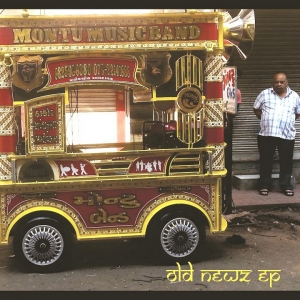
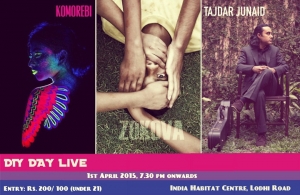
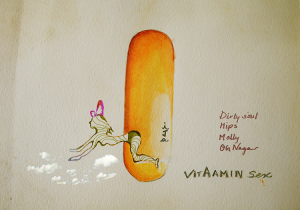
.jpg)

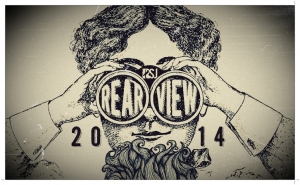
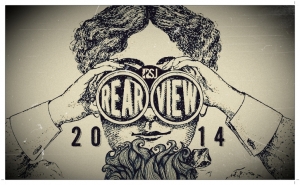
Leave a comment